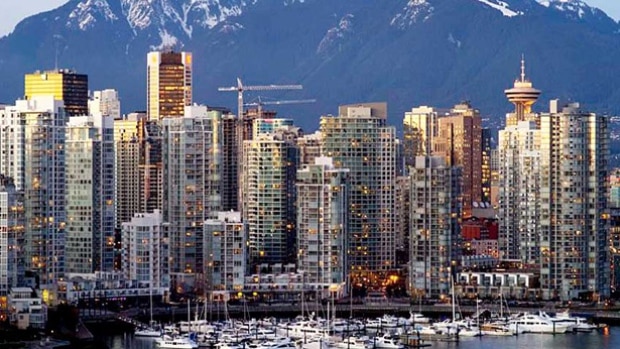Condos in the Metro Vancouver area: Inspect it now and save in the future

Face it. We live in a rainforest. Although it’s enviable to live on the West Coast, with its mild winters, green landscape and cultural diversity, it’s a fact that the amount of rainfall and moisture that our outside air contains is a detriment to our building envelopes.
What is an envelope? Just as it sounds, an envelope is the exterior component of your building or home. It may or may not be wood construction, sheathed with cedar or stucco, concrete or other cladding material.
The problems that face condominium construction and ownership in BC are not limited to our province. All throughout North America, varying degrees of moisture penetration and deterioration are evident, for varying reasons. If you’re ever had a business computer fixed, and the hardware guy says “it’s software related,” and the software guy says, “it’s your hardware”, you may understand what I mean. I believe the problem is multi-faceted – a combination of poor construction and new technology regarding ventilation, plus building materials and especially – design.
The problem is not limited to condominiums. Just a few miles away from my home, a business strip mall is completely covered in that familiar blue tarp. My printer is one of the tenants. Two years ago, I warned him about his choice of location, as I could see evidence of problems even then. He didn’t really believe me, until of course; a month ago I visited his new blue-tarped premises. The corrective measures are costing the owner approximately three million dollars. As well, in my travels as a home inspector, I find many homes, not all new, that are suffering with the same “leaky” problems.
A home inspector can be a valuable consultant in both the home/condo purchase process, as well as an informative resource to the strata-council or homeowner. Prior to purchase, of course, the value is evident. A potential purchaser will see some (but not all) problems before the purchase is completed. For a building owner, the inspector can provide valuable advice about maintenance and preventative repair of existing conditions or potential future ones that can save thousands of dollars in the future.
Preventative repair may be as simple as a squirt of caulking, the installation of a simple metal flashing, or providing drainage for cascading water. It doesn’t take a lot of expense to save time, trouble and money.
It is important to point out, however, that the building inspector does not have x-ray vision. He cannot see through walls, or predict the future. However, through years of on-the-job experience, training and continuing education, he can see problems the average building owner may overlook. There are indications or evidence of potential problems in almost every building inspected, and there is always more than one solution. The expenses that correct or prevent existing conditions, or prevent future deterioration will vary with those solutions. For example: the common rainscreen corrective measure for leaky condos, which usually is fair;y expensive, versus only correcting obvious leaking areas of the building, which will not necessarily solve any future problems, and may simply hide existing conditions.
A preliminary investigation of a strata grouping can be reasonably inexpensive. In a short period of time, a good inspector can take the strata council on a detailed inspection of the surrounding grounds, venting, roof, exterior and landscaping components of the site. He will point out corrective measures (when he sees that they are needed), and give you information on how to prevent future costs/problems from occurring. If necessary, he will direct you to other specialists for further evaluation. Sometimes it’s as simple as moving some vegetation from a wall to prevent moisture building up against foundation and exterior cladding.
It’s very important to check the condition of any component that has a warranty attached to it. The inspector should be contacted in a reasonable period of time prior to the warranty expiring. If a problem should show up, this will give the warrantor a reasonable period of time to conduct his own inspection. Obviously, letting “good money go out the window” because of untimely discovery is not good business.
In any case, the building inspection will make every strata council member attending a more knowledgeable building partner. The challenges of building ownership should not be a fearful one. With good information backing you up, the enterprise should be profitable and long-lasting.
Gary Poirier, is a registered home inspector with HIABC, an association of inspectors working throughout British Columbia. You can reach Gary at 220-0305 or email him at gary@walkaboutinspections.com
